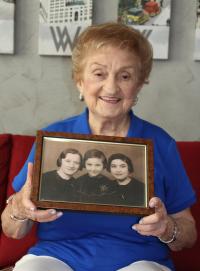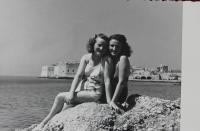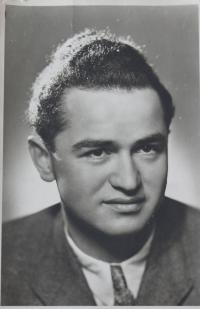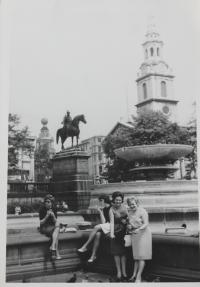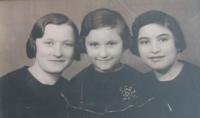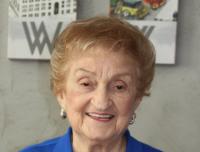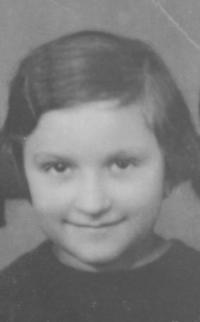I am fortunate to have a sense of humour
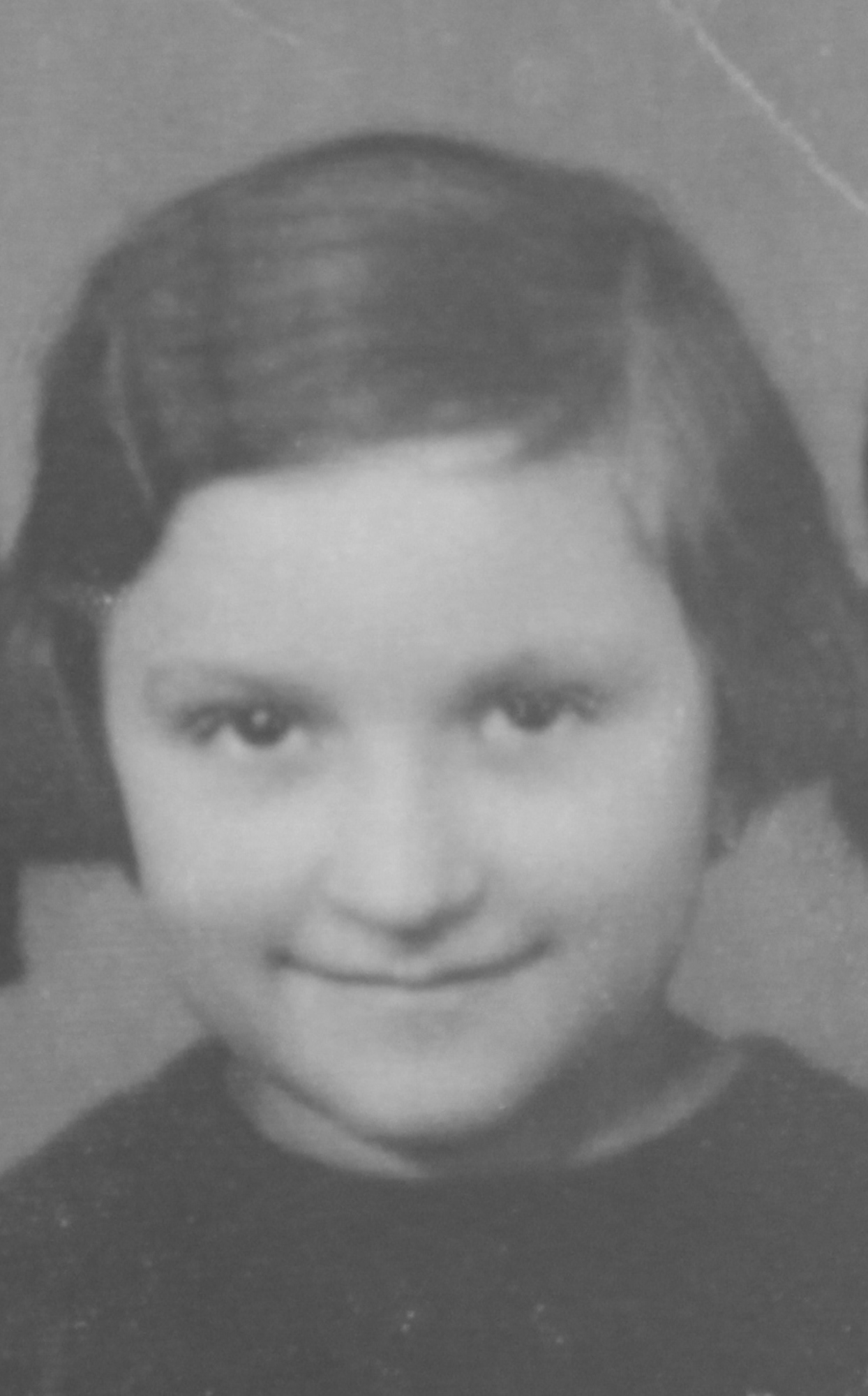
Stáhnout obrázek
Teresa Wiesnerová (nee Terézia Deutelbaum) was born on October 9, 1928 in Topoľčany as the youngest of the three sisters. Her father was a director of Agricultural Storage Cooperative. In 1940, when she was about to start attending the second year at the municipal school, she was forbidden to do so because of her Jewish origin. However, the five-year Jewish school managed to get a permission to open three more classes, so Teresa Deutelbaum was able to finish her elementary education. Later, her older sister Nela found herself in one of the first transports to Auschwitz concentration camp which was dispatched in March 1942. The rest of the family lived in Topoľčany up until the year 1944 when they were driven to the labour camp in Sereď and then, five weeks later, the whole family was transported to Auschwitz. That day it was Teresa‘s 16th birthday. When the end of the war came, Teresa was in Bergen Belsen concentration camp in Germany. After the camp‘s liberation by the English troops, she spent several weeks in former German barracks and infirmary near Hannover, where people were nursed because otherwise they would not be able to survive the way back to Slovakia. In 1945, Teresa and her sister went through Pilsen and Prague and managed to get to Topoľčany where there was her sister‘s husband waiting for them. They lost 27 members of their family who had lived in Topoľčany. However, due to the pogrom they decided not to settle there. Then, Teresa and her sister and brother in law moved to Komárno where Teresa met her future husband Ondrej Wiesner. In 1948 they got married, but a year later, when the communists took over the power, they moved to Israel. Later, they both lived and did their business in Nicaragua, where they spent 25 years. However, in the late 1970s after the communist coup, they fled to Maimi where they live up to the present time.
